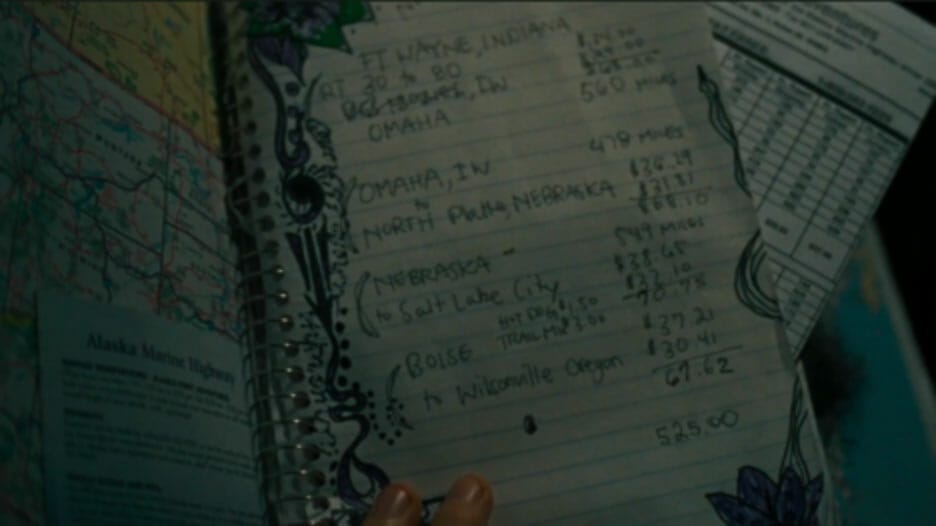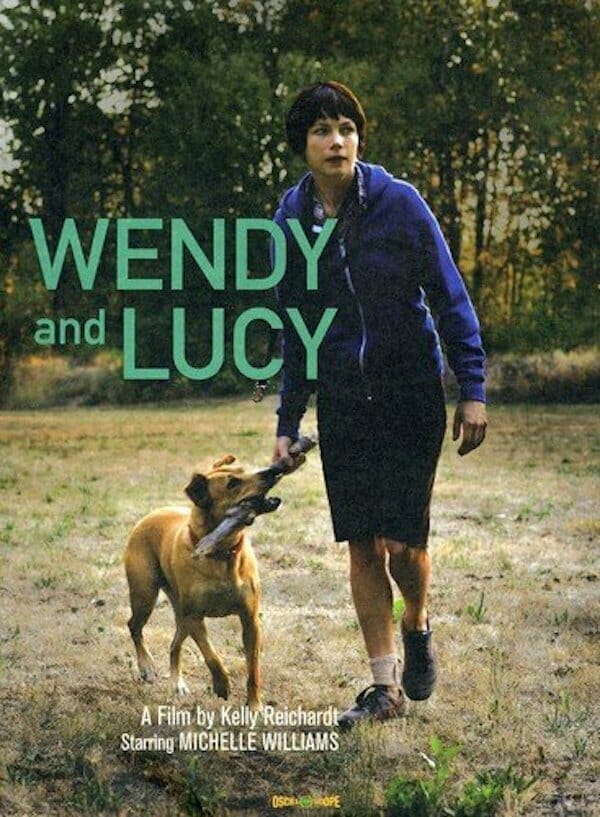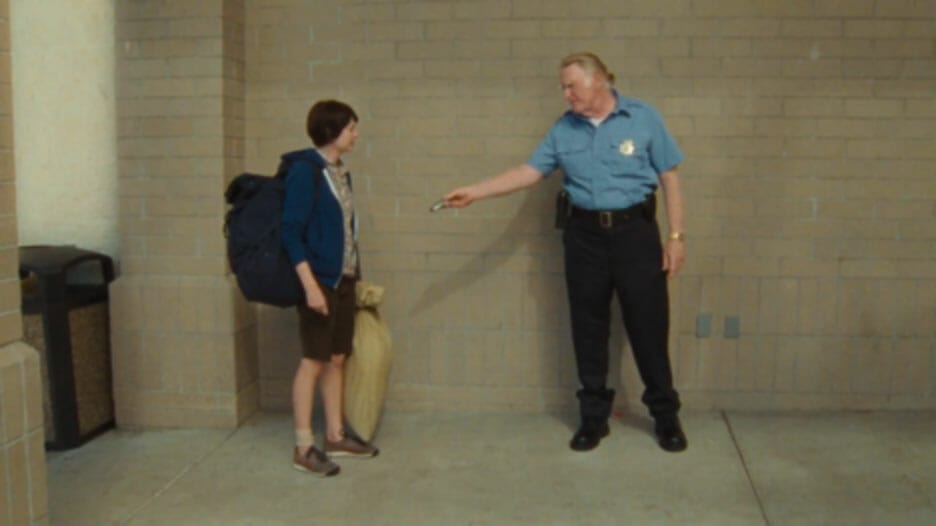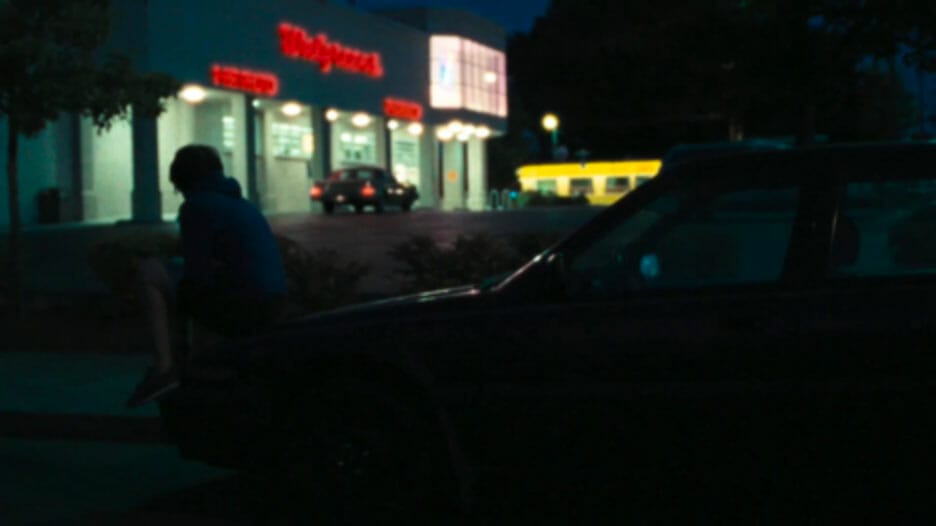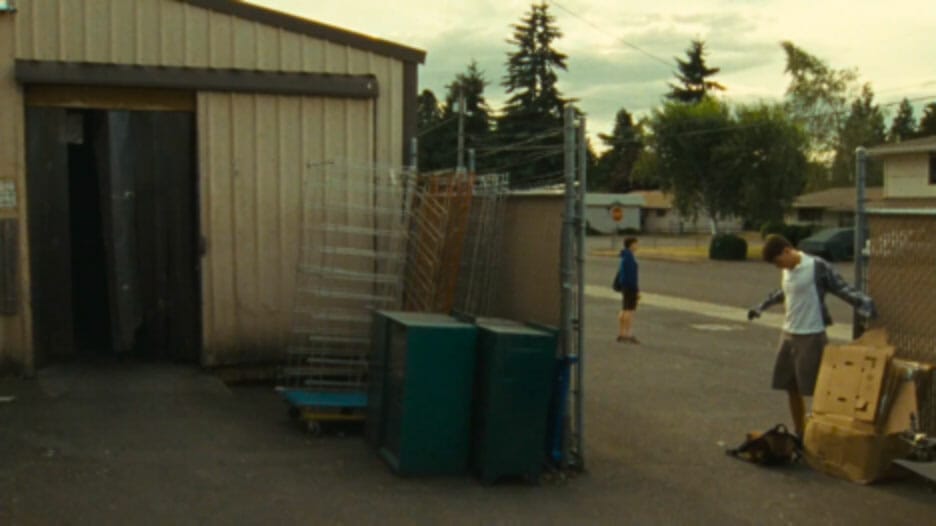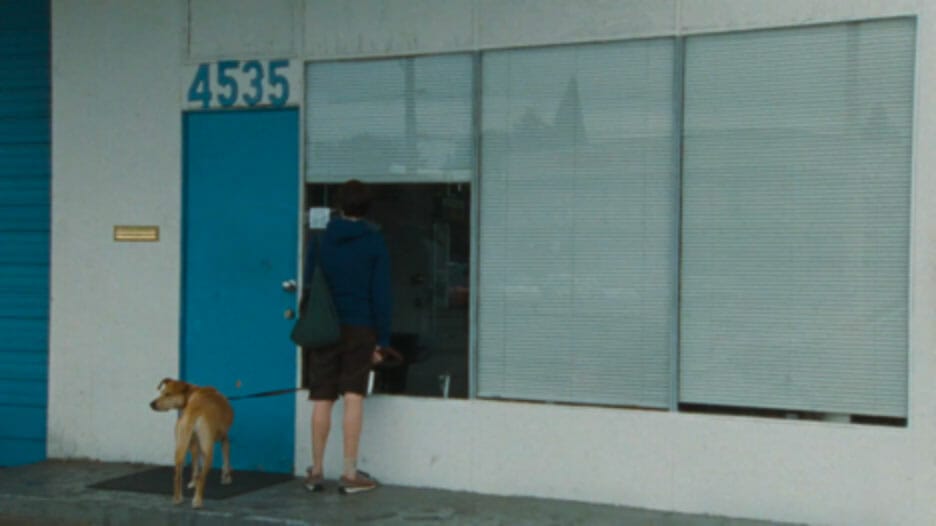Editor’s Note: Find more OVID.tv film reviews here.
There’s nothing new about Kelly Reichardt’s 2008 film Wendy And Lucy. On the surface, the plot synopsis could fit on an index card: Wendy Carroll (Michelle Williams), a drifter on the road to Alaska with her dog Lucy, stops in an unnamed Oregon town when her car won’t start. From there, she and Lucy explore the town, until the car shop reopens the following morning. Interactions with a local police officer (Walter Dalton), a mechanic (Will Patton), and several teenagers around the neighborhood provide a window into the mood of the town––one that doesn’t take kindly to strangers.
Little more can be said about all of the turns in Wendy And Lucy’s 80-minute runtime, but know that Reichardt has little interest in anything outside of the film’s realistic diegesis. The film doesn’t even boast a score, save for a small snippet of hummed melody that recurs during moments of travel between locations. It’s a story that no one in the town would recall, one that neither changed their lives nor impacted their day in a way they couldn’t soothe over.
However, for Wendy, whose viewpoint the audience shares, Reichart’s film is one of desperate tension––not the tension of action movies, but the tension of a high wire. It’s the tension of knowing that any small slip will result in a cascade of consequences that will forever alter Wendy’s course towards Alaska.
WENDY AND LUCY Discusses The Social Cost Of Poverty
Wendy has no money to spare––just enough for the few busses she takes around the town, and one phone call made to her sister, in Indiana. When the car breaks down, her first thought is to feed Lucy, but the bag of dog food is nearly empty. Her trip to the store leads to the first of many decisions made throughout the film that lead to the dissolution of the little security Wendy has built up.
It’s an idea explored previously by Vittorio De Sica, in his 1948 masterpiece Bicycle Thieves, or by Fernando Meirelles and Kátia Lund in 2002’s City of God: the bitter truth that, for the poor, every aspect of life is a bit more expensive. The laws and social codes broken by Wendy throughout the film may paint her as a lawless drifter to the denizens of the town, but the audience––knowing the cause of the desperation that has driven her to these unusual actions––is able to sympathize with Wendy, and her plight.
Reichardt doesn’t resort to painting the town as uniformly of one mind about Wendy and Lucy, either. The citizens land along a spectrum, from the actively hostile (the grocery store clerk Andy, played by John Robinson) to mercifully helpful (Dalton, as a beacon of hope amid the film’s grungy seriousness). In the middle, however, lie the targets of Reichardt’s greatest scorn: the passive observers. Wendy brings a bag of tin cans to a recycling plant early in the film, talking with the other men in line. When she returns, more destitute than before, they barely have the energy to look up at her as she asks for help. Multiple businesses in the town, from the auto shop to the police station to the pound, all respond to Wendy with only blank stares when she cannot provide an address or phone number. Amid the many injuries, both to body and soul, that Wendy and Lucy endure during the story, it’s these small slights that leave the deepest impact.
OVID.tv Film Keeps The Pace Slow, But Purposefully
A contemporary, subtle tragedy like Wendy And Lucy won’t be for all viewers. The lack of more overt filmmakingstyle––such as the absence of background music, the reliance on still shots and closeups, and the washed out color palette of the cinematography––may not grab the attention like other blockbusters. In this writer’s view, however, this focus on minimalistic craft allows the audience to better follow along with Wendy’s journey.
The relaxed pace of the film, coupled with the mountainous stakes that Wendy faces, creates a devastating sense of being trapped: a way of allowing the viewer to feel the resignation to misery that Wendy lives with constantly. The film’s ending, without spoiling, makes the choice not to show how this impoverished life affects Wendy personally, but how it affects Lucy––who remains in the mind of the viewer constantly, even when she’s not on screen.
Lucy (the character is played by a dog of the same name) is the driving force behind Wendy’s actions in the film. At the grocery store, the audience doesn’t see Wendy take any food for herself, but instead cans of dog food for her companion. The film’s introduction, with Lucy playing fetch in the woods, immediately establishes the titular relationship as the only constant in Wendy’s life, and as a cornerstone of her shaky sense of comfort.
The events of Wendy And Lucy may seem small-- pointless, even. Most viewers will have experienced the mundanity of most actions taken in the film, without developing lifelong memories about those moments. What Reichardt’s film does best, in this writer’s view, is reliably allow the audience to see these unimportant moments in life for the vital, challenging, and heartbreaking hurdles that they serve for the less fortunate.
RECOMMENDED
Read the OVID.tv webpage about WENDY AND LUCY
Nominate this for The Picture This Post BEST OF 2020???
Click Readers' Choice
Vote Securely! Vote Privately! And Make Your Vote Count-- as all voting should be!!
Executive Producer: Todd Haynes
Director/Editor: Kelly Reichardt
Screenplay: Kelly Reichardt & Jon Raymond
Director of Photography: Sam Levy
Production Designer: Ryan Smith
Starring: Michelle Williams, Walter Dalton
Images courtesy of Ovid.tv.
About the Author:
Zach Barr (they/them) is a freelance director and writer based in the Chicagoland area. Their work has previously been featured by Newcity Stage, Scapi Magazine, and on their own blog The Hanslick Girls. Zach serves as the Literary Associate at Sideshow Theatre Company, and is a recurring participant in Chicago Dramatists’ Playwrights Aloud series. Find Zach Barr on social (@AdmiralZachBarr), or on their website.

